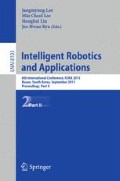Abstract
In this paper, a boost PFC rectifier with a novel passive lossless snubber circuit is proposed to minimize switching loss in high power applications. A new turn-on mechanism of the lossless snubber using coupled inductor is applied to reduce the reverse recovery loss of the output diode rectifier. The turn-off operation of the lossless snubber is composed of a single capacitor and two diodes to reduce the voltage stress and the power loss at the turn-off of the switch. Due to the lossless clamping operation, the proposed PFC operates under soft switching conditions with high power conversion efficiency. The design and performance of the boost PFC rectifier using the proposed lossless snubber are verified by experimental results using a 3.3kW prototype rectifier.
Access this chapter
Tax calculation will be finalised at checkout
Purchases are for personal use only
Preview
Unable to display preview. Download preview PDF.
References
Jovanovic, M.M., Jang, Y.: A novel active snubber for high power boost converter. IEEE Transactions on Power electronics 15(2), 278–284 (2000)
Li, R.T.H., Chung, H.S.-H., Sung, A.K.T.: Passive lossless snubber for boost PFC with minimum voltage and current stress. IEEE Transactions on Power Electronics 25(3), 602–613 (2010)
Jiang, S.-G., Liu, G.-H., Wang, W., Xu, D.-G.: Research on bridgeless boost PFC with soft-switching. In: 2009 IEEE Vehicle Power and Propulsion Conference, pp. 1461–1464 (2009)
Hwu, K.I., Tsai, C.-L., Lin, K.-F.: A simple passive ZCS circuit for PFC converter. In: IEEE 2008 Applied Power Electronics Conference, pp. 1022–1026 (2008)
Schenk, K.: Non dissipative snubber circuit with saturable reactor. U.S. Patent 7 233 507 (June 2007)
Joung, G., Ma, K., Kim, Y.: Battery discharger applications of high frequency boost converter with lossless snubber. In: Proc. 33th IEEE Power Electron. Spec. Conf. (PESC), pp. 938–942 (2002)
Hwu, K.I., Tsai, C.-L., Lin, K.-F.: A simple passive ZCS circuit for PFC converter. In: IEEE 2008 Applied Power Electronics Conference, pp. 1022–1026 (2008)
Author information
Authors and Affiliations
Editor information
Editors and Affiliations
Rights and permissions
Copyright information
© 2013 Springer-Verlag Berlin Heidelberg
About this paper
Cite this paper
Yun, HJ., Kim, JH., Ryu, MH., Kim, HJ. (2013). A Boost PFC Rectifier with a Passive Lossless Snubber Circuit Using Coupled Inductors Methodes. In: Lee, J., Lee, M.C., Liu, H., Ryu, JH. (eds) Intelligent Robotics and Applications. ICIRA 2013. Lecture Notes in Computer Science(), vol 8103. Springer, Berlin, Heidelberg. https://doi.org/10.1007/978-3-642-40849-6_32
Download citation
DOI: https://doi.org/10.1007/978-3-642-40849-6_32
Publisher Name: Springer, Berlin, Heidelberg
Print ISBN: 978-3-642-40848-9
Online ISBN: 978-3-642-40849-6
eBook Packages: Computer ScienceComputer Science (R0)

